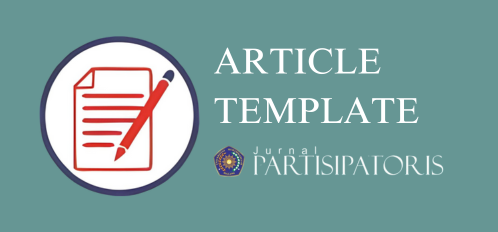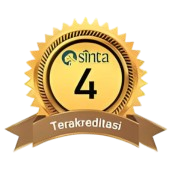Moderinisasi Kehidupan Spiritual (Studi Literatur terhadap Agama Digital di Ruang Digital)
DOI:
https://doi.org/10.22219/jp.v5i2.35150Abstract
Agama digital merupakan wajah kehidupan spiritualitas manusia yang terintegrasi dalam ruang digital. Zaluchu (2024) menjelaskan bahwa agama digital merupakan produk budaya modern yang karakteristiknya yaitu teknologi digital. Agama digital menurut Campbell dkk (2013) adalah bentuk kehadiran agama yang diekspresikan secara online oleh komunitas-komunitas spiritual dan memuat ritual baru yang menyatukan antara teknologi dan kehidupan spiritual itu sendiri. Artikel ini disusun dengan menggunakan metode studi literatur yang mengadaptasi garis besar dari model pencarian literatur menurut Ridley (2012) yang terdiri dari tahap eksplorasi perpustakaan digital; menentukan kata kunci untuk menemukan jurnal maupun artikel ilmiah dengan tema yang sesuai; dan menggunakan teknik snowball untuk memperluas cakupan eksplorasi literatur. Adapun hasil studi menunjukan bahwa agama digital bukan aliran agama baru, melainkan sebuah praktik spiritualitas yang memanfaatkan ruang digital sebagai medium untuk mereka mengaktualisasikan ritual, nilai, dan memperluas jaringan komunitas melalui internet. Dengan meminjam pemikiran Durkheim, temuan kedua menjelaskan tentang peran ruang digital sebagai arena kehidupan spiritualitas yang baru.
Downloads
References
Dialogue. International Conference on Religion, Spirituality and Humanity, 1(1), 69–80. http://pps.iainsalatiga.ac.id/wp-content/uploads/2019/12/The-Impacts-of-Internet-of-Things-and-Digital-Culture-on-Contemporary-Islamic-Christian-Dialogue.pdf
Zaluchu, S. E. (2023). Church Digitalization and the New Koinonia in the Era of the “Internet of Things.” International Bulletin of Mission Research, 47(1), 32–40. https://doi.org/10.1177/23969393221082641
Zaluchu, S. E. (2024). Digital Religion, Modern Society and the Construction of Digital Theology. Transformation, 1, 1–11. https://doi.org/10.1177/02653788231223929
Zaluchu, S. E., Wiryadinata, H., Rimun, R., Santo, J. C., & Novalina, M. (2022). Using Google Trends to Analyze Keywords ‘Ibadah Online’ and ‘Gereja Online’ in Indonesia. Proceedings of the International Conference on Theology, Humanities, and Christian Education (ICONTHCE 2021), 669(Iconthce 2021), 51–55. https://doi.org/10.2991/assehr.k.220702.013
Downloads
Published
How to Cite
Issue
Section
License

This work is licensed under a Creative Commons Attribution-ShareAlike 4.0 International License.
Authors who publish with Jurnal Partisipatoris agree to the following terms:
- For all articles published in the Jurnal partisipatoris, copyright is retained by the authors. Authors give permission to the publisher to announce the work with conditions. When the manuscript is accepted for publication, the authors agree to the automatic transfer of non-exclusive publishing rights to the publisher.
- Authors retain copyright and grant the journal right of first publication with the work simultaneously licensed under a Creative Commons Attribution-ShareAlike 4.0 International License that allows others to share the work with an acknowledgment of the work's authorship and initial publication in this journal.
- Authors are able to enter into separate, additional contractual arrangements for the non-exclusive distribution of the journal's published version of the work (e.g., post it to an institutional repository or publish it in a book), with an acknowledgment of its initial publication in this journal.
- Authors are permitted and encouraged to post their work online (e.g., in institutional repositories or on their website) prior to and during the submission process, as it can lead to productive exchanges, as well as earlier and greater citation of published work (See The Effect of Open Access).











